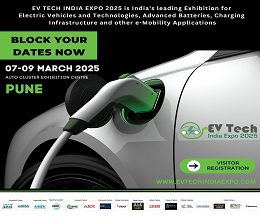Georgia Vacuum Cleaners Market (2025-2031) | Size, Trends, Outlook, Analysis, Revenue, Forecast, Share, Value, Industry, Growth, Companies
Market Forecast By Products (Canister, Robotics, Upright & Others), By Distribution Channel (Online, Offline), By End Users (Industrial, Commercial, Residential) and Competitive Landscape
| Product Code: ETC004436 | Publication Date: Sep 2020 | Updated Date: Dec 2024 | Product Type: Report | |
| Publisher: 6Wresearch | No. of Pages: 70 | No. of Figures: 35 | No. of Tables: 5 | |
Georgia Vacuum Cleaners Market Highlights
| Report Name | Georgia Vacuum Cleaners Market |
| Forecast period | 2025-2031 |
| CAGR | 5% |
| Growing Sector | Residental Sector |
Topics Covered in the Georgia Vacuum Cleaners Market Report:
The Georgia Vacuum Cleaners Market report thoroughly covers the market by products, by distribution channels, and by end users.The market report provides an unbiased and detailed analysis of the ongoing market trends, opportunities/high growth areas, and market drivers which would assist stakeholders to devise and align their market strategies according to the current and future market dynamics.
Georgia Vacuum Cleaners Market Synopsis:
The vacuum cleaner market in Georgia is experiencing significant growth, driven by advancements in cleaning technology and a heightened awareness of hygiene. This shift reflects a move away from traditional cleaning methods towards more efficient, environmentally friendly solutions, aligning with Georgia's increasing emphasis on quality and sustainability. The growing demand highlights a broader trend of incorporating cutting-edge technologies and eco-conscious practices into the cleaning industry. As a result, Georgia has emerged as a leader in modern vacuum cleaner production, focusing on improving quality standards and offering products tailored to the changing needs of diverse sectors. This evolution underscores the country's commitment to innovation and sustainability in cleaning solutions.
According to 6Wresearch, the Georgia Vacuum Cleaners Market size is expected to grow at a substantial CAGR of 5% during the forecast period of 2025-2031.The vacuum cleaner market in Georgia is booming as both businesses and individuals increasingly prioritize efficient, reliable, and eco-friendly cleaning solutions. This growing demand for superior performance and environmental responsibility is driving a shift towards specialized cleaning products. Companies are investing heavily in innovative technologies that blend high performance with eco-conscious design. This trend reflects a broader industry movement towards combining advanced cleaning capabilities with a strong focus on environmental sustainability. As consumers and businesses alike seek out products that deliver top-notch cleanliness while minimizing environmental impact, the market continues to evolve, highlighting a commitment to both effectiveness and ecological responsibility.
Despite the tremendous growth in the Georgia Vacuum Cleaners market, certain challenges persist. These include competition from international players, which may hinder the growth of local high-quality brands. Additionally, the growing preference for more cost-effective alternatives could pose a challenge for traditional cleaning methods. However, there is also an opportunity for businesses to expand their reach with the escalating adoption of modern cleaning technologies.
Georgia Vacuum Cleaners Industry: Leading Players
In Georgia vacuum cleaner industry, several key players are shaping the market with their innovative products and commitment to quality. Leading companies include renowned brands such as Dyson, which is known for its cutting-edge technology and powerful suction capabilities. Hoover is another significant player, offering a range of reliable and durable vacuum cleaners suited for various needs. Additionally, Bissell stands out with its focus on versatile and user-friendly designs. Local companies also play a crucial role, providing tailored solutions that cater to the specific needs of Georgian consumers. These industry leaders are not only driving market growth with their advanced and eco-friendly products but also setting new standards in performance and sustainability. Their ongoing investments in research and development reflect a dedication to meeting the evolving demands of the market while maintaining a strong emphasis on environmental responsibility.
Vacuum Cleaners Market in Georgia: Government Regulations
In Georgia, the vacuum cleaners market is influenced by various government regulations aimed at ensuring product safety, efficiency, and environmental impact. Regulations focus on energy efficiency standards, mandating that vacuum cleaners meet specific energy consumption criteria to reduce power usage and lower environmental footprints. Additionally, there are guidelines for noise levels to ensure that vacuum cleaners operate quietly, contributing to a more pleasant environment in both residential and commercial settings. Manufacturers must also comply with regulations related to the disposal and recycling of vacuum cleaner components to minimize environmental harm. These regulations drive companies to innovate, improving the performance and eco-friendliness of their products while adhering to state and federal standards. Overall, these regulations help ensure that the vacuum cleaners available in Georgia are both effective and environmentally responsible, reflecting the state’s commitment to sustainability and consumer protection.
Future Insights of the Market:
The vacuum cleaner market in Georgia is set to continue its robust growth, driven by rising consumer demand for advanced and eco-friendly cleaning solutions. As environmental concerns become increasingly prominent, both households and businesses are prioritizing vacuum cleaners that offer not only superior performance but also reduced ecological impact. This shift is prompting manufacturers to invest in developing more innovative technologies, such as energy-efficient models, improved filtration systems, and sustainable materials. Additionally, the market is likely to see an expansion in smart vacuum cleaners that offer automated features and enhanced user convenience. With ongoing advancements and a heightened focus on environmental responsibility, the vacuum cleaner industry in Georgia is poised for exciting developments, catering to a growing market that values both effectiveness and sustainability in cleaning solutions.
Market Segmentation By Products:
According to Ravi Bhandari, Research Head, 6Wresearch,robotic models are experiencing the most significant growth. This surge is driven by their convenience and advanced features, such as automated cleaning schedules, smart home integration, and efficient navigation systems. As consumers increasingly seek solutions that save time and offer effortless cleaning, robotic vacuums are becoming a popular choice.
Market Segmentation By Distribution Channel:
Among the various distribution channels,online distribution channels are experiencing the most significant growth. The rise of e-commerce has transformed how consumers shop for home appliances, offering the convenience of browsing a wide range of products, reading reviews, and comparing prices from the comfort of their homes. This shift is driven by the increasing popularity of online shopping platforms, which provide a seamless purchasing experience and often feature exclusive deals and promotions.
Market Segmentation By End Users:
Among the various end users of vacuum cleaners, the residential sector is experiencing the most significant growth. As more consumers prioritize cleanliness and convenience in their homes, there is a heightened demand for advanced vacuum cleaners that offer superior performance and eco-friendly features. This trend is driven by a growing awareness of indoor air quality and the increasing popularity of smart home technologies.
Key Attractiveness of the Report
- 10 Years of Market Numbers.
- Historical Data Starting from 2021 to 2024.
- Base Year: 2024
- Forecast Data until 2031.
- Key Performance Indicators Impacting the Market.
- Major Upcoming Developments and Projects.
Key Highlights of the Report:
- Georgia Vacuum Cleaners Market Overview
- Georgia Vacuum Cleaners Market Outlook
- Georgia Vacuum Cleaners Market Forecast
- Historical Data of Georgia Vacuum Cleaners Market Revenues & Volume for the Period 2021-2031
- Georgia Vacuum Cleaners Market Size and Georgia Vacuum Cleaners Market Forecast of Revenues & Volume, Until 2031
- Historical Data of Georgia Vacuum Cleaners Market Revenues & Volume, by Products, for the Period 2021-2031
- Market Size & Forecast of Georgia Vacuum Cleaners Market Revenues & Volume, by Products, Until 2031
- Historical Data of Georgia Vacuum Cleaners Market Revenues, by Distribution Channel, for the Period 2021-2031
- Market Size & Forecast of Georgia Vacuum Cleaners Market Revenues, by Distribution Channel, Until 2031
- Historical Data of Georgia Vacuum Cleaners Market Revenues, by End Users, for the Period 2021-2031
- Market Size & Forecast of Georgia Vacuum Cleaners Market Revenues, by End Users, Until 2031
- Historical Data of Central Region Vacuum Cleaners Market Revenues, for the Period 2021-2031
- Market Size & Forecast of Central Region Vacuum Cleaners Market Revenues, Until 2031
- Historical Data of Western Region Vacuum Cleaners Market Revenues, for the Period 2021-2031
- Market Size & Forecast of Western Region Vacuum Cleaners Market Revenues, Until 2031
- Historical Data of Southern Region Vacuum Cleaners Market Revenues, for the Period 2021-2031
- Market Size & Forecast of Southern Region Vacuum Cleaners Market Revenues, Until 2031
- Historical Data of Eastern Region Vacuum Cleaners Market Revenues, for the Period 2021-2031
- Market Size & Forecast of Eastern Region Vacuum Cleaners Market Revenues, Until 2031
- Market Drivers and Restraints
- Georgia Vacuum Cleaners Market Trends and Industry Life Cycle
- Porter’s Five Force Analysis
- Market Opportunity Assessment
- Georgia Vacuum Cleaners Market Share, By Players
- Georgia Vacuum Cleaners Market Share, By Regions
- Georgia Vacuum Cleaners Market Overview on Competitive Benchmarking
- Company Profiles
- Key Strategic Recommendations
Markets Covered
The report offers a comprehensive study of the subsequent market segments
By Products:
- Canister
- Robotics
- Upright
- Others
By Distribution Channel:
- Online
- Offline
By End Users:
- Industrial
- Commercial
- Residential
Georgia Vacuum Cleaners Market (2025-2031): FAQs
| 1. Executive Summary |
| 2. Introduction |
| 2.1 Report Description |
| 2.2 Key Highlights of The Report |
| 2.3 Market Scope & Segmentation |
| 2.4 Research Methodology |
| 2.5 Assumptions |
| 3. Georgia Vacuum Cleaners Market Overview |
| 3.1 Georgia Country Indicators |
| 3.2 Georgia Vacuum Cleaners Market Revenues and Volume 2021 -2031 |
| 3.3 Georgia Vacuum Cleaners Market Revenue Share, By Products, 2021 & 2031 |
| 3.4 Georgia Vacuum Cleaners Market Revenue Share, By Distribution Channel, 2021 & 2031 |
| 3.5 Georgia Vacuum Cleaners Market Revenue Share, By End User, 2021 & 2031 |
| 3.6 Georgia Vacuum Cleaners Market Revenue Share, By Regions, 2021 & 2031 |
| 3.7 Georgia Vacuum Cleaners Market - Industry Life Cycle |
| 3.8 Georgia Vacuum Cleaners Market - Porter’s Five Forces |
| 4. Georgia Vacuum Cleaners Market Dynamics |
| 4.1 Impact Analysis |
| 4.2 Market Drivers |
| 4.3 Market Restraints |
| 5. Georgia Vacuum Cleaners Market Trends |
| 6. Georgia Vacuum Cleaners Market Overview, By Products |
| 6.1 Georgia Vacuum Cleaners Market Revenues and Volume, By Canister, 2021 -2031 |
| 6.2 Georgia Vacuum Cleaners Market Revenues and Volume, By Upright, 2021 -2031 |
| 6.3 Georgia Vacuum Cleaners Market Revenues and Volume, By Robotics, 2021 -2031 |
| 6.4 Georgia Vacuum Cleaners Market Revenues and Volume, By Others, 2021 -2031 |
| 7. Georgia Vacuum Cleaners Market Overview, By Distribution Channel |
| 7.1 Georgia Vacuum Cleaners Market Revenues and Volume, By Online, 2021 -2031 |
| 7.2 Georgia Vacuum Cleaners Market Revenues and Volume, By Offline, 2021 -2031 |
| 8. Georgia Vacuum Cleaners Market Overview, By End User |
| 8.1 Georgia Vacuum Cleaners Market Revenues and Volume, By Industrial, 2021 -2031 |
| 8.2 Georgia Vacuum Cleaners Market Revenues and Volume, By Commercial, 2021 -2031 |
| 8.3 Georgia Vacuum Cleaners Market Revenues and Volume, By Residential, 2021 -2031 |
| 9. Georgia Vacuum Cleaners Market - Key Performance Indicators |
| 10. Georgia Vacuum Cleaners Market - Opportunity Assessment |
| 10.1 Georgia Vacuum Cleaners Market Opportunity Assessment, By Products, 2031 |
| 10.2 Georgia Vacuum Cleaners Market Opportunity Assessment, By Distribution Channel, 2031 |
| 10.3 Georgia Vacuum Cleaners Market Opportunity Assessment, By End User, 2031 |
| 11. Georgia Vacuum Cleaners Market Competitive Landscape |
| 11.1 Georgia Vacuum Cleaners Market Revenue Share, By Company |
| 11.2 Georgia Vacuum Cleaners Market Competitive Benchmarking, By Operating & Technical Parameters |
| 12. Company Profiles |
| 15. Key Recommendations |
| 16. Disclaimer |
- Single User License$ 1,995
- Department License$ 2,400
- Site License$ 3,120
- Global License$ 3,795
Search
Related Reports
- South Korea Space Power Electronics Market (2025-2031) | Companies, Trends, Revenue, Outlook, Forecast, Industry, Value, Size, Analysis, Growth & Share
- Voluntary Carbon Credit Market (2025-2031) | Companies, Outlook, Share, Forecast, Revenue, Value, Industry, COVID-19 IMPACT, Growth, Size, Analysis & Trends
- Water Purifier Market (2025-2031) | Value, Share, Size, Growth, Industry, Outlook, Analysis, Forecast, Trends, Companies & Revenue
- UAV Market (2025-2031) | Size, Forecast, Value, Revenue, Trend, Growth, Analysis & Outlook
- Smart Speaker Market (2025-2031) | Size, Trends, Share, Outlook, Revenue, Forecast, Analysis, Value, Segmentation & Industry
- Microgrid Market (2025-2031) | Value, Share, Growth, Outlook, Industry, Companies, Trends, Revenue, Forecast, Analysis & Size
- Mobile Credential Reader Market (2025-2031) | Analysis, Industry, Size, Share, Revenue, Forecast, Trends, Growth, Value & Outlook
- North America Planting Equipment Market (2024-2030) | Outlook, Size, Growth, Companies, Revenue, Share, Analysis, Forecast, Industry, Value & Trends
- Light Fidelity (Li-Fi) Market (2025-2031) | Share, Revenue, Trends, Size, Industry, Forecast, Companies, Growth, Outlook, Analysis & Value
- UAE Ready Mix Concrete Market (2024-2030) | Industry, Segmentation, Share, Analysis, Forecast, Companies, Outlook, Competitive Landscape, Trends, Value, Growth, Size & Revenue
Industry Events and Analyst Meet
Our Clients
Whitepaper
- Middle East & Africa Commercial Security Market Click here to view more.
- Middle East & Africa Fire Safety Systems & Equipment Market Click here to view more.
- GCC Drone Market Click here to view more.
- Middle East Lighting Fixture Market Click here to view more.
- GCC Physical & Perimeter Security Market Click here to view more.
6WResearch In News
- India's Printer Market Faces 20.7% Decline in Q4 2023: Epson and HP Lead Amidst Downturn
- India's Camera Market Sees 8.9% Decline in Q4 2023; Canon Leads with 38.4% Share
- Doha a strategic location for EV manufacturing hub: IPA Qatar
- Demand for luxury TVs surging in the GCC, says Samsung
- Empowering Growth: The Thriving Journey of Bangladesh’s Cable Industry
- The future of gaming industry in the Philippines













